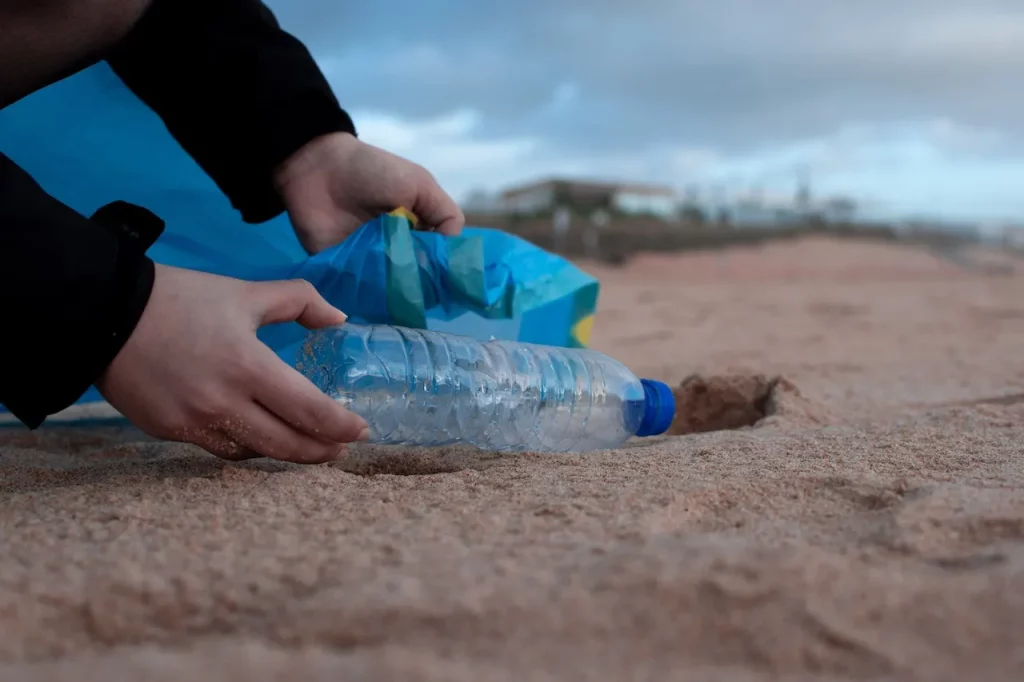Sustainable travel is an important part of protecting the environment and preserving our planet for future generations. It is about making conscious decisions when planning your trips, to reduce your impact on the environment and ensure that you are leaving a positive legacy for future generations. Sustainable travel can involve reducing your carbon footprint, supporting local economies, and respecting the culture and customs of the places you visit. With a few simple steps, you can make your travels more sustainable and help to protect our planet.
Definition of Sustainable Travel

Sustainable travel is a form of tourism that takes into account the environmental, social and economic impacts of travel and seeks to minimize them. It involves using resources responsibly, minimizing waste and pollution, preserving local cultures, respecting wildlife, and supporting the local economy. Sustainable travel also includes reducing carbon emissions, conserving natural resources, and promoting responsible tourism practices.
Table of Contents
Benefits of Sustainable Travel
Sustainable travel has many benefits for both the environment and the traveler. It can reduce air pollution, conserve energy, and reduce the environmental impact of transportation. Additionally, sustainable travel can help promote local economies by supporting small businesses and providing employment opportunities. Sustainable travel also encourages travelers to be more mindful of their actions, leading to more meaningful experiences.
Furthermore, sustainable travel can help preserve cultural heritage and biodiversity, allowing future generations to experience the same natural beauty and cultural diversity that we have today. Ultimately, sustainable travel is beneficial for both the environment and the traveler, making it a win-win situation.
Types of Sustainable Travel
Sustainable travel is a form of tourism that takes into account the environmental, social and economic impact of the traveler’s activities. It encourages travelers to be conscious of their actions and to choose destinations, activities and accommodations that are less damaging to the environment.
There are several types of sustainable travel, including ecotourism, responsible tourism, green travel and volunteer travel. Ecotourism is a type of sustainable travel that focuses on visiting natural areas while minimizing the environmental impact. It involves activities such as bird watching, wildlife photography and nature walks. Responsible tourism is another type of sustainable travel that involves choosing destinations and activities that are socially and environmentally responsible. This could include supporting local businesses, staying in eco-friendly accommodations or participating in conservation efforts. Green travel is a type of sustainable tourism that is focused on reducing the traveler’s carbon footprint.
This could include choosing to take public transportation or carpooling instead of driving, opting for sustainable accommodations and eating locally-sourced food. Volunteer travel is a type of sustainable travel that involves participating in volunteer projects in the destination. This could include helping to build homes for those in need, teaching English or participating in conservation efforts.
Overall, sustainable travel is an important way to reduce the environmental and social impacts of tourism. By choosing to participate in ecotourism, responsible tourism, green travel or volunteer travel, travelers can make a positive impact on their destinations and help protect the environment.
A – Eco-Friendly Accommodations

Sustainable travel is becoming more and more popular as people look for ways to reduce their environmental impact. Eco-friendly accommodations are a great way to make sustainable travel even easier. These accommodations are designed with the environment in mind, often using green building materials, energy-saving appliances, and renewable energy sources. Additionally, many eco-friendly accommodations are located close to natural attractions, making them great for exploring the outdoors.
Eco-friendly accommodations also often have a focus on local culture and cuisine, helping to support the local economy and reduce the environmental impact of imported goods. Eco-friendly accommodations provide a great way for travelers to reduce their environmental impact while still enjoying a comfortable and enjoyable stay.
B – Responsible Tour Operators

Responsible tour operators of sustainable travel are those who prioritize the preservation and protection of the environment, culture, and wildlife while delivering memorable experiences to travelers. These tour operators are committed to reducing their environmental impact by implementing green practices such as energy conservation, waste management, and water conservation.
They also strive to support the local communities by offering economic opportunities and using local services and resources. Additionally, responsible tour operators are committed to educating travelers about the importance of sustainable travel practices, such as respecting wildlife and cultural sites, reducing consumption of single-use plastics, and supporting local businesses. By doing so, they promote responsible tourism and help to ensure that future generations are able to enjoy the same travel experiences.
C – Low Carbon Transportation Options

Low carbon transportation options are becoming increasingly popular as society moves towards more sustainable travel. These options include walking, cycling, carpooling, electric vehicles, public transport and ride sharing services. Walking and cycling are two of the most environmentally friendly forms of transport available. They are also very good for personal health and fitness, as well as being relatively inexpensive.
Carpooling is also a great way to reduce emissions, as it allows multiple people to travel in one car. Electric vehicles are becoming increasingly popular due to their low carbon footprint and the fact that they do not require petrol or diesel to power them. Public transport is also a great way to reduce emissions, as it allows many people to travel in one vehicle and reduces the amount of cars on the road.
Ride sharing services such as Uber and Lyft are becoming increasingly popular, as they allow multiple people to share a ride and reduce their carbon footprint. Low carbon transportation options are a great way to reduce emissions and create a more sustainable travel system.
D – Sustainable Food and Drink Choices

Making sustainable food and drink choices while traveling is an important part of sustainability in travel. Sustainable food and drink choices can help reduce the environmental impact of your trip, support local economies, and promote healthy eating habits. When it comes to food, look for locally sourced ingredients whenever possible. Eating at local restaurants and buying from local farmers’ markets are great ways to support the local economy and reduce your carbon footprint. Additionally, look for restaurants that use organic ingredients, as this is better for the environment. When it comes to drinks, try to avoid single-use plastic bottles.
Bring a reusable water bottle with you and fill it up at local water fountains or filtered tap water. If you are looking for something other than water, consider purchasing drinks in cans or glass bottles, as these are more easily recycled. By making sustainable food and drink choices while traveling, you can help reduce the environmental impact of your trip, support local economies, and promote healthy eating habits.
Strategies for Sustainable Travel
A- Reduce Waste and Single-Use Plastics

Sustainable travel is a great way to reduce waste and single-use plastics. One of the most effective ways to do this is by bringing reusable containers and bags with you on your travels. This can include things like reusable water bottles, coffee mugs, and shopping bags. Additionally, try to avoid purchasing single-use items like straws and plastic cutlery. Instead, opt for reusable utensils that can be washed and reused.
Finally, make sure to properly dispose of any waste you generate while traveling. This includes recycling or composting whenever possible. By taking these steps, you can help reduce the amount of waste and single-use plastics that are produced during travel.
B- Choose Local Experiences and Products

When it comes to sustainable travel, there are many ways to support local experiences and products. By choosing to stay in locally-owned accommodations, you can help keep money in the local economy and support small businesses.
You can also seek out locally-made souvenirs and products, such as handcrafted jewelry, pottery, and textiles. Eating at local restaurants and frequenting farmers’ markets are also great ways to enjoy the local culture while supporting sustainable tourism. By shopping locally and responsibly, you can help reduce your environmental impact while contributing to the well-being of the local community.
C- Support Communities Through Responsible Tourism
Responsible tourism can be an effective way to support communities around the world, while also promoting sustainable travel. Responsible tourism focuses on the positive impacts of tourism on local people, culture, and the environment. It encourages travelers to respect local customs, cultures, and traditions by engaging in activities that are beneficial to the local communities.
Responsible tourism also encourages travelers to purchase locally-made goods and services, which helps to stimulate the local economy. Additionally, it encourages travelers to reduce their environmental impact by using public transportation or eco-friendly accommodations. By following these principles, responsible tourists can help ensure that local communities continue to benefit from tourism in a sustainable way.
D- Respect the Environment and Wildlife

Sustainable travel is an important part of preserving and protecting the environment for future generations. It is essential to respect the environment and wildlife when traveling to ensure that our actions do not have a negative impact on nature.
This includes reducing waste, conserving energy, minimizing water use, and respecting local wildlife. Additionally, it is important to be mindful of the impact of our transportation choices, such as choosing public transportation or carpooling over single-occupancy vehicles. By taking these steps, we can help ensure that the environment and wildlife will remain healthy and intact for future travelers to enjoy.
E- Offset Your Carbon Footprint
Sustainable travel is a great way to reduce your carbon footprint and help protect the environment. There are a number of ways to offset your carbon footprint while traveling, such as taking public transportation whenever possible, choosing eco-friendly accommodations, and participating in sustainable activities.
Additionally, you can offset your carbon emissions by investing in green energy projects, such as wind and solar power, or by purchasing carbon offsets. Carbon offsets are investments made in projects that reduce greenhouse gas emissions, such as reforestation. By making these investments, you can help reduce the amount of carbon dioxide released into the atmosphere. Sustainable travel is a great way to help protect the environment and reduce your carbon footprint.
F- Educate Yourself About Sustainable Travel

Sustainable travel is a way of exploring the world while minimizing your impact on the environment. It involves reducing waste, conserving resources, and supporting local economies. To get started, educate yourself about sustainable travel by researching topics such as green transportation options, eco-friendly accommodations, and responsible tourism practices.
You can also look into ways to offset your carbon footprint and support sustainable projects in the places you visit. Sustainable travel can help you explore the world while leaving a positive impact on the environment.
Conclusion
Sustainable travel is an important step in protecting our environment and ensuring that future generations can continue to enjoy the same beautiful places we do today. With careful planning and consideration of our environmental impact, we can all be responsible travelers and help preserve the planet for years to come.
Also Read: The Best UK Staycations – Find Your Perfect Getaway Now !




